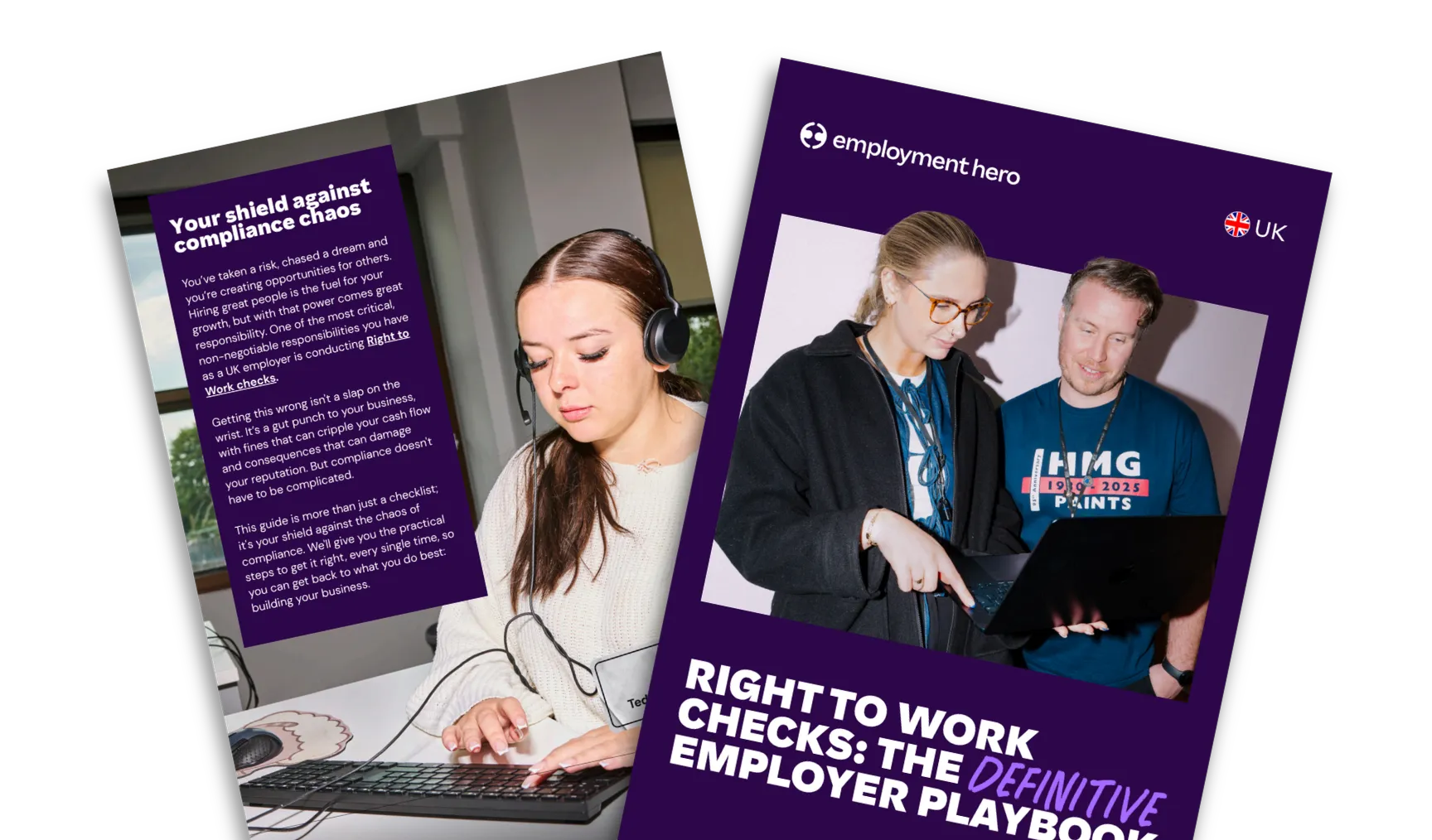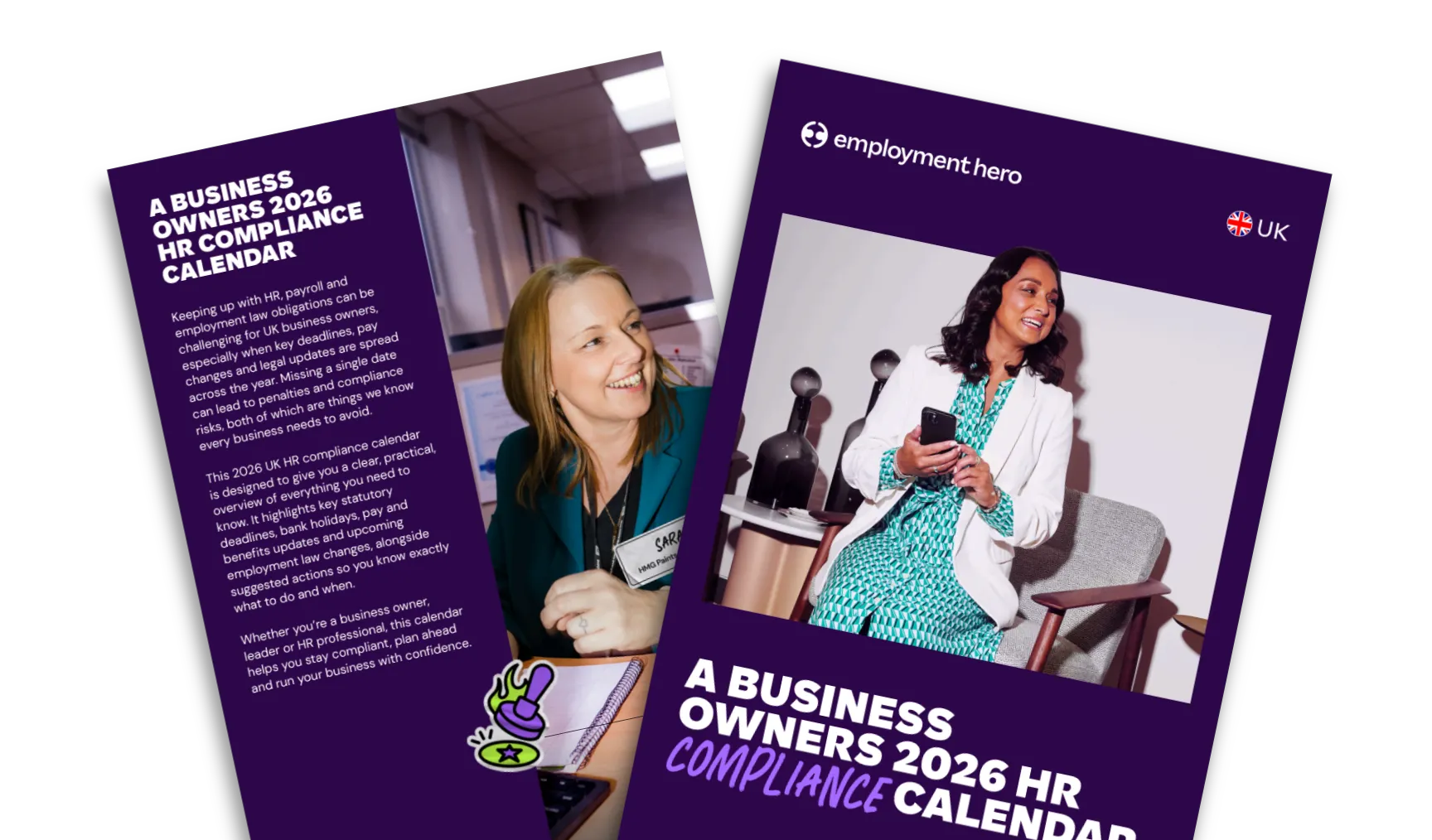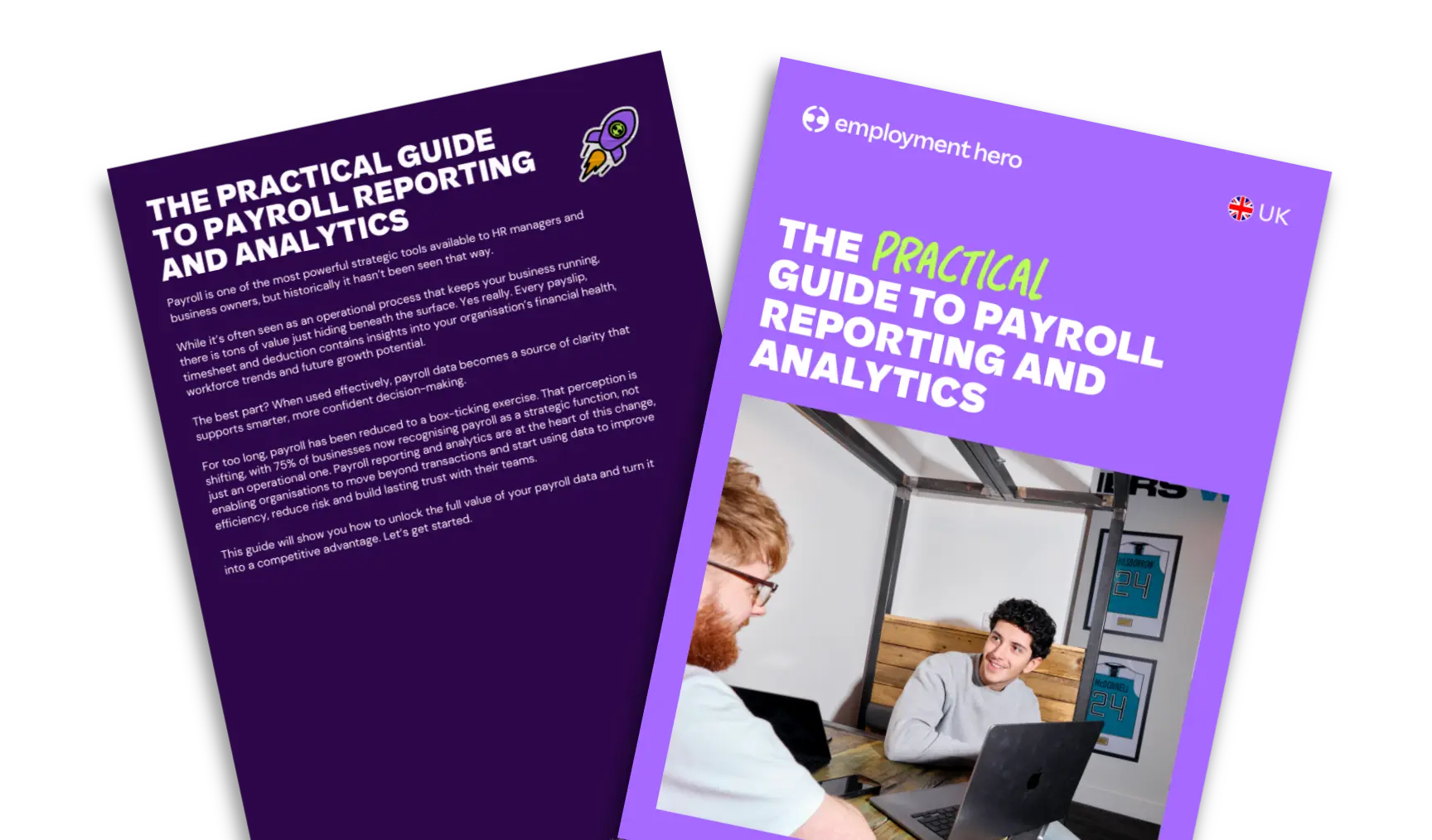The Complete Interview Checklist for Hiring Managers
Published
The Complete Interview Checklist for Hiring Managers
When it comes to hiring, winging it isn’t a strategy. An interview checklist for hiring managers helps you prepare properly, run the conversation smoothly and evaluate candidates fairly.
An effective checklist ensures consistency across interviews, reduces unconscious bias and helps every candidate have a positive experience. By following a structured process, you can make more confident hiring decisions and avoid overlooking important details.
We’ve put together everything you need in one place, including a customisable interview checklist template you can download and use straight away.
Pre-interview preparation checklist
Being prepared is half the battle. Use this job interview preparation checklist before meeting your candidates:
- Define the job role and ideal candidate profile.
- Review the job description and ensure it is accurate and up to date.
- Set clear evaluation criteria and scoring rubrics.
- Prepare standardised interview questions for consistency.
- Review the candidate’s CV, cover letter and portfolio.
- Schedule interview logistics, including location, video link, and time zones.
- Notify other interviewers or panel members of their involvement.
- Prepare supporting materials, such as a company culture overview and benefits information.
Want to refine how you schedule and plan interviews? Take a look at our guide on best practices when scheduling interviews.
During the interview checklist
Once the conversation begins, structure and consistency are key. Follow this checklist for interviewing a candidate:
- Greet the candidate warmly and set clear expectations for the interview.
- Briefly introduce the company and the role.
- Ask structured questions that align with your evaluation criteria.
- Take notes in real time using your scorecard or rubric.
- Allow time for the candidate to ask their own questions.
- Assess both technical skills and soft skills, such as problem-solving and communication.
- Remain objective by being aware of unconscious bias.
- Stay on schedule and manage the time effectively.
If you are exploring structured approaches to questions, our resource on behavioural interviewing for soft skills is a great place to start.
Post-interview follow-up checklist
The evaluation process doesn’t end once the candidate leaves. A checklist for interviewer to prepare for follow up ensures that no steps are missed:
- Capture your impressions immediately while they are fresh.
- Complete interview scorecards or rating sheets.
- Debrief with other interviewers if more than one person attended.
- Compare candidates fairly using your pre-set criteria.
- Send timely follow ups, including:
- Thank you emails to candidates.
- Updates on next steps or rejections.
- Thank you emails to candidates.
- Record all notes in your applicant tracking system if you use one.
- Reflect on what went well and where improvements can be made for future interviews.
If you are hiring remotely, you may also find our list of 101 remote interview questions useful.
Customisable interview checklist template (free download)
To make life easier, we have created a free employer interview checklist template that you can tailor to your hiring process. It covers every stage from preparation to follow up and ensures nothing gets missed.
Download your free interview checklist for hiring managers and keep your hiring process structured and consistent.
Common mistakes hiring managers make (and how to avoid them)
Even the most experienced managers can slip into habits that reduce the effectiveness of an interview. Here are some of the most common mistakes we see, along with practical ways to avoid them:
1. Not preparing structured questions in advance
Walking into an interview without a clear set of standardised questions can make it hard to compare candidates fairly. It can also lead to missed opportunities to explore important skills. Create a job interview checklist that includes consistent, role-specific questions. This ensures every candidate has an equal chance to showcase their abilities and keeps the evaluation process objective.
2. Over-prioritising culture fit instead of role fit
It’s natural to want someone who aligns with your team culture, but focusing too much on likeability can mean overlooking the core skills needed for the role. Balance your assessment by looking at both technical requirements and values alignment. Use a scoring rubric to weigh skills, experience and cultural add-ons equally.
3. Talking more than listening
Some hiring managers fall into the trap of overselling the role or company during the interview. While it’s important to share information, dominating the conversation prevents you from learning about the candidate. Stick to the 70/30 rule. Let the candidate do most of the talking, while you guide the conversation with well-prepared questions. This creates space for meaningful insights.
4. Forgetting to follow up or debrief properly
Candidates who don’t hear back promptly often walk away with a poor impression of the company. Likewise, failing to debrief with co-interviewers can lead to inconsistent or rushed decisions. Build follow-ups into your interview checklist for hiring managers. Schedule a short debrief with other interviewers immediately after the session§ and set reminders to update candidates within a clear timeframe.
5. Being inconsistent across candidates
Changing your approach from one interview to the next makes it difficult to compare applicants fairly and increases the risk of bias. Use a scorecard or rating sheet for every interview. Ask the same core questions in each session and record notes in real time. This keeps the process structured and ensures fair evaluation across the board.
From checklist to confident hiring decisions
A structured interview checklist for hiring managers removes the guesswork from recruitment. It gives every candidate a fair experience, helps you make confident decisions, and saves valuable time across your hiring team.If you want to go a step further, Employment Hero can help. Our hiring software makes it simple to manage candidates, schedule interviews, and keep your recruitment process consistent from start to finish. Pair it with our free interview guide for hiring managers and you’ll have everything you need to hire the best people for your business.
FAQs
Start with a clear job description, structured questions and evaluation criteria. Review the candidate’s application materials and confirm interview logistics.
Use a consistent scorecard, ask the same core questions across candidates and assess both technical expertise and soft skills. Documenting notes in real time improves fairness.
Use a scoring rubric or structured note-taking sheet. This keeps feedback objective and makes it easier to compare candidates afterwards.
Yes. Scorecards are a vital part of a job interview checklist as they reduce bias and allow fair comparisons between applicants.
Most structured interviews last between 45 minutes and one hour. This allows enough time for both technical and behavioural questions, plus time for the candidate to ask questions.
Not always, but it can be useful for technical or task-based questions. Providing some guidance helps candidates prepare and ensures a more productive conversation.
Register for the checklist
Related Resources
-
 Read more: Right to Work Checks: A Complete Employer’s Guide (2025 Update)
Read more: Right to Work Checks: A Complete Employer’s Guide (2025 Update)Right to Work Checks: A Complete Employer’s Guide (2025 Update)
Ensure compliance with UK right to work checks. Discover how to complete manual, digital, and online checks correctly and meet…
-
 Read more: A Business Owners 2026 HR Compliance Calendar: Stay Confident, Stay Compliant
Read more: A Business Owners 2026 HR Compliance Calendar: Stay Confident, Stay CompliantA Business Owners 2026 HR Compliance Calendar: Stay Confident, Stay Compliant
Stay ahead in 2026 with our HR Compliance Calendar. Key deadlines, legal updates and compliance tips to keep your business…
-
 Read more: The Ultimate Guide to Payroll Reporting and Analytics
Read more: The Ultimate Guide to Payroll Reporting and AnalyticsThe Ultimate Guide to Payroll Reporting and Analytics
Published Published Payroll for HR managers and business owners is one of your most powerful strategic tools. While it is…



















